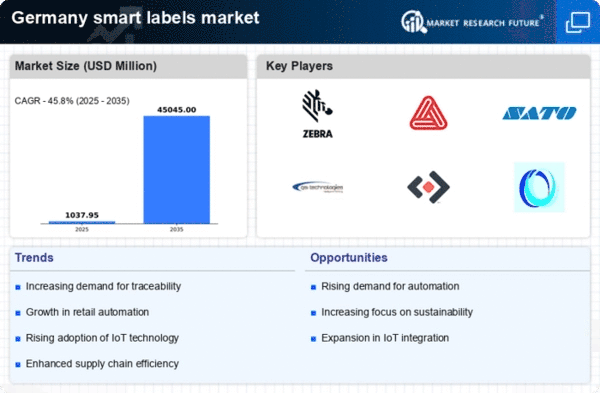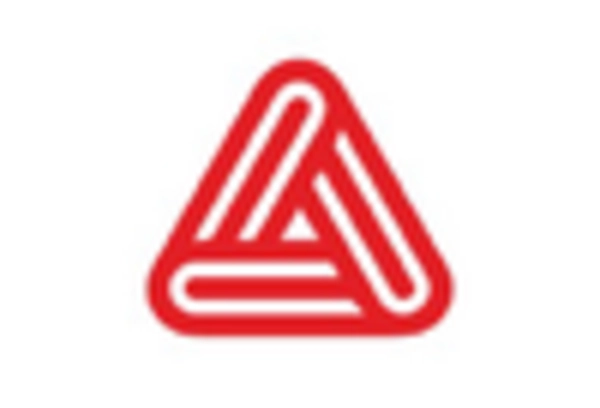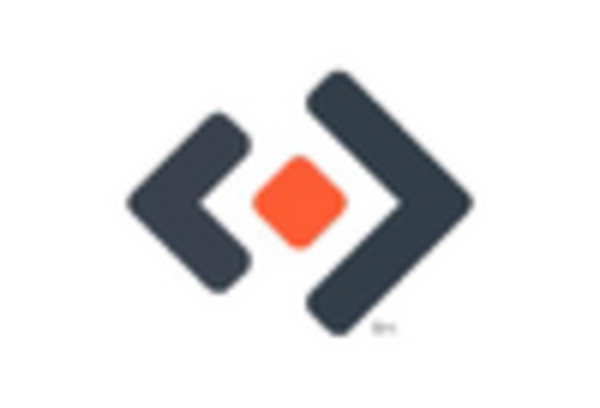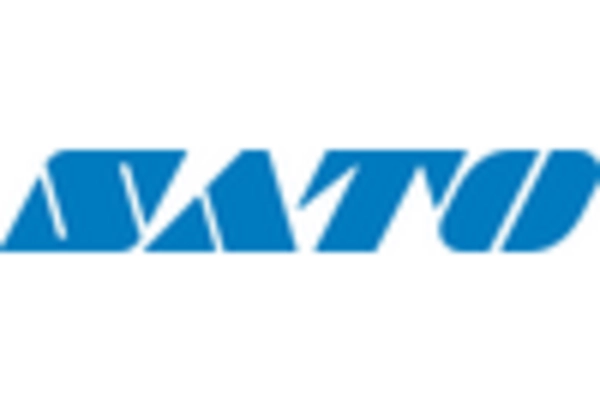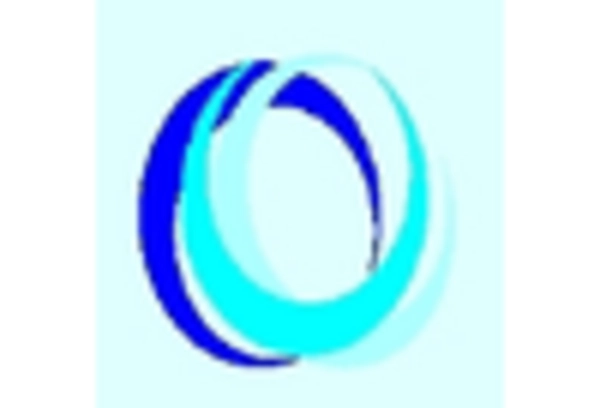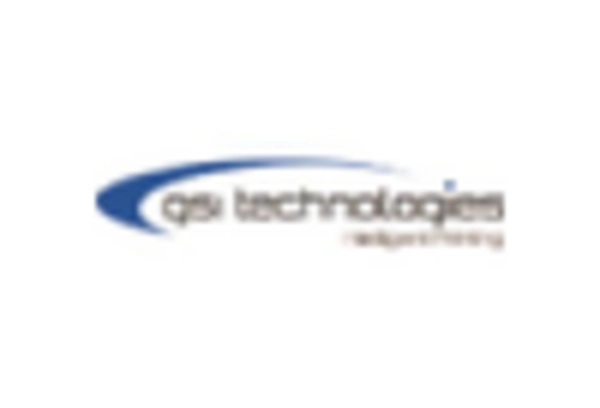Technological Integration in Retail
The integration of advanced technologies in the retail sector is a significant factor driving the smart labels market in Germany. Retailers are leveraging smart labels to enhance customer experiences and streamline operations. Technologies such as RFID and NFC are being utilized to provide customers with instant access to product information, promotions, and inventory levels. This trend is particularly evident in the grocery sector, where smart labels can improve checkout efficiency and reduce stock discrepancies. Recent studies indicate that retailers implementing smart labeling solutions have reported a 20% increase in operational efficiency. As the retail landscape continues to evolve, the demand for smart labels is expected to rise, further propelling the growth of the smart labels market.
Consumer Preference for Personalization
Consumer preferences in Germany are shifting towards personalized shopping experiences, which is driving the smart labels market. Smart labels enable brands to offer tailored information and promotions based on individual consumer behavior and preferences. This level of personalization is becoming increasingly important as consumers seek products that resonate with their values and lifestyles. For instance, brands utilizing smart labels can provide customized nutritional information or eco-friendly product details, appealing to health-conscious and environmentally aware consumers. As a result, the smart labels market is likely to expand as companies invest in technologies that facilitate personalized marketing strategies, thereby enhancing customer engagement and loyalty.
Regulatory Compliance and Safety Standards
In Germany, stringent regulatory compliance and safety standards are significantly influencing the smart labels market. The food and pharmaceutical sectors, in particular, are subject to rigorous regulations that mandate accurate labeling and traceability. Smart labels facilitate compliance with these regulations by providing essential information such as expiration dates, batch numbers, and safety instructions. The market is projected to grow as companies increasingly adopt smart labeling solutions to avoid penalties and ensure consumer safety. For instance, the implementation of the EU's General Food Law requires traceability in the food supply chain, which smart labels can effectively support. This regulatory landscape is likely to drive investments in smart labeling technologies, thereby expanding the smart labels market in Germany.
Rising Demand for Supply Chain Transparency
The smart labels market in Germany is experiencing a significant increase in demand for enhanced supply chain transparency. Companies are increasingly adopting smart labels to track products throughout the supply chain, ensuring real-time visibility and accountability. This trend is driven by consumer expectations for transparency regarding product origins and handling. According to recent data, approximately 70% of German consumers express a preference for brands that provide detailed product information. As a result, businesses are investing in smart labeling technologies to meet these demands, thereby propelling growth in the smart labels market. The integration of Internet of Things (IoT) capabilities with smart labels further enhances tracking efficiency. This is crucial for industries such as food and pharmaceuticals, where safety and compliance are paramount.
Growth of the Logistics and Transportation Sector
The growth of the logistics and transportation sector in Germany is significantly benefiting the smart labels market. As e-commerce continues to flourish, the need for efficient logistics solutions becomes paramount. Smart labels play a crucial role in optimizing logistics operations by enabling real-time tracking and inventory management. The German logistics market is projected to reach €300 billion by 2026, creating a favorable environment for smart labeling technologies. Companies are increasingly adopting smart labels to enhance operational efficiency, reduce costs, and improve customer satisfaction. This trend indicates a robust future for the smart labels market, as logistics providers seek innovative solutions to meet the demands of a rapidly evolving marketplace.


